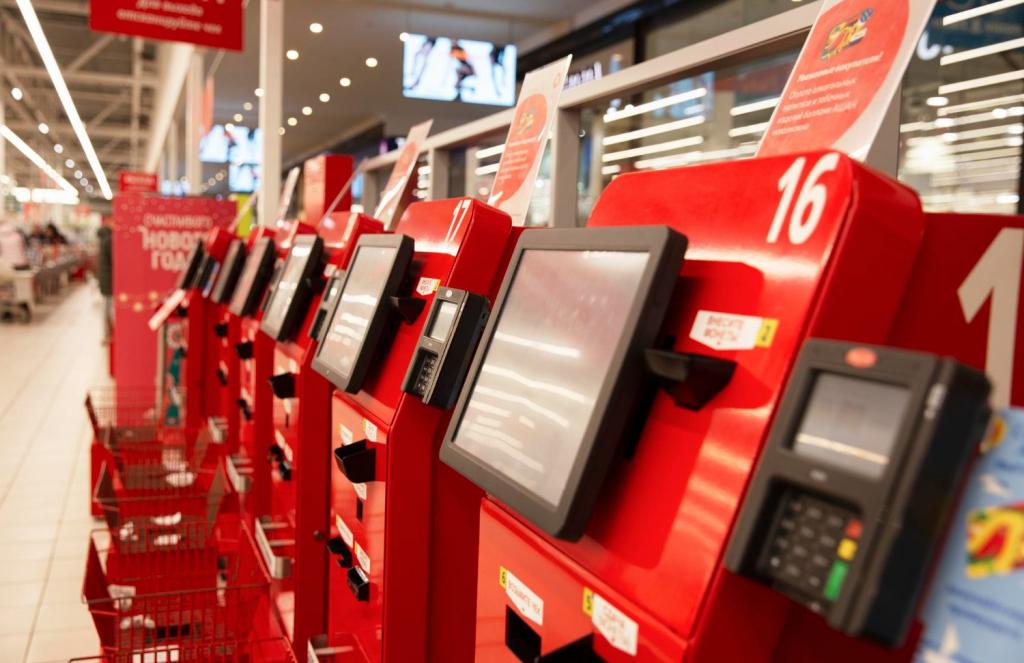Thessaloniki gets ready for its metro launch in November
The underground rapid transit lines have been under construction for almost two decades due to various project delays
 TheMayor.EU logo
TheMayor.EU logo 
Self-scan checkout has only gained worldwide prominence in the past couple of years, Source: Freepik
The local mayor, Catherine Moureaux, argues that this practice disrupts social cohesion and causes job loss in her municipality
Today, the local council in the Brussels sub-municipality of Molenbeek introduced a tax on automated checkout machines. The tax will be as high as 5,600 euros per checkout machine and will be due this year, as RTBF reports.
This is the first time such a tax has been levied in Belgium, though automated checkout machines at supermarkets and shops are a fairly recent development in their current form. They have gained prominence across Europe in the past two years, with more and more shops cutting down on staff.
One of the reasons for the tax, according to Catherine Moureaux, Mayor of Molenbeek, is that automated checkout machines are a bane to social cohesion. She explained that especially in areas where there are a lot of elderly people and the community relies very heavily on interacting at the shop.
Furthermore, she explains that this is a clear break in the contact between customers and workers, which could have profound social implications for the community and contribute to a lonelier urban experience.
Mayor Moureaux also explained that the tax is an attempt to compensate citizens in the municipality for their economic activity. She pointed out that economic actors in the municipality should contribute in a meaningful way.
With an automated checkout machine, customers bag, scan and pay for all their purchases. The shopper is invited to carry out some of the tasks previously done by employees, which means that he or she is, in a way, ‘working’. It also means that jobs in the area are disappearing.
According to her colleague, Alderman of Finance, Georges Van Leeckwyck, the local budget is faced with a lot of pressure from the myriad of crises rocking Europe these past few months. Thus, this could be a way for authorities to diversify their tax revenues.

The underground rapid transit lines have been under construction for almost two decades due to various project delays

Now you can get your wine in Talence by paying directly in Bitcoin

That’s because the state has to spend money on updating the railway infrastructure rather than subsidizing the cost of the popular pass

Rethinking renewable energy sources for the urban landscape

The examples, compiled by Beyond Fossil Fuels, can inform and inspire communities and entrepreneurs that still feel trepidation at the prospect of energy transition

Now you can get your wine in Talence by paying directly in Bitcoin

The 10th European Conference on Sustainable Cities and Towns (ESCT) sets the stage for stronger cooperation between the EU, national and local level to fast track Europe's transition to climate neutrality.

At least, that’s the promise made by the mayor of Paris, Anne Hidalgo

The underground rapid transit lines have been under construction for almost two decades due to various project delays

At least, that’s the promise made by the mayor of Paris, Anne Hidalgo

Hostal de Pinós is located in the geographical centre of the autonomous region

Despite its church-y name, the district has long been known as the hangout spot for the artsy crowds

Urban dwellers across the EU are having a say in making their surroundings friendlier to people and the environment.

Forests in the EU can help green the European construction industry and bolster a continent-wide push for architectural improvements.

Apply by 10 November and do your part for the transformation of European public spaces

An interview with the Mayor of a Polish city that seeks to reinvent itself

An interview with the newly elected ICLEI President and Mayor of Malmö

A conversation with the Mayor of Lisbon about the spirit and dimensions of innovation present in the Portuguese capital














